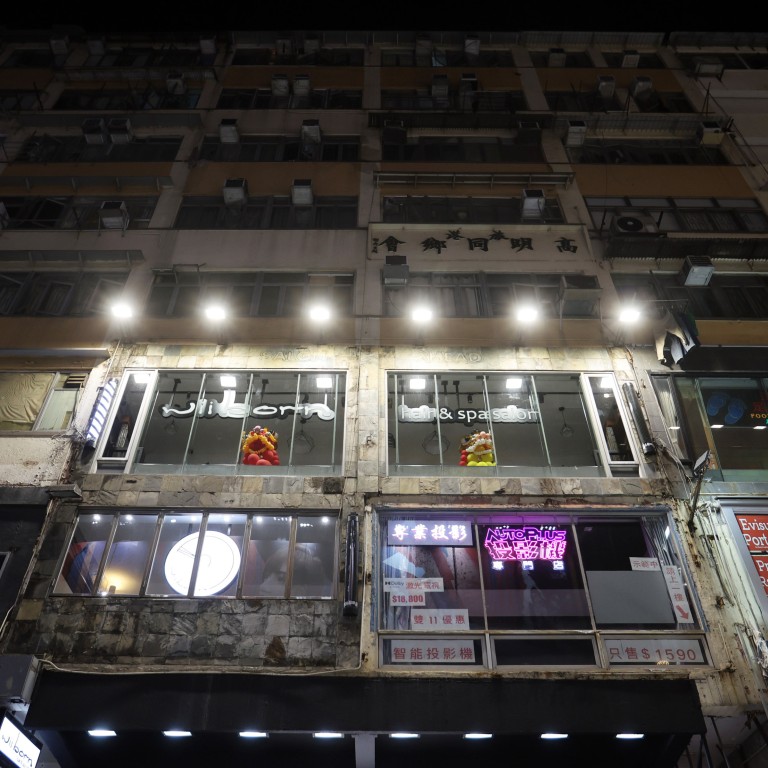
Hong Kong’s glaring problem: green group finds shops stay lit despite call to switch off at night
- Light pollution is worsening but residents have no recourse to fix the problem, The Green Earth says
- Shops that signed charter promising to switch off are found with lights on, but blame ‘malfunctions’
A Hong Kong government move to get building owners to voluntarily switch off their outdoor lights late at night is not working, according to a green group that conducted surveys in the city.
It found that even some building owners who signed a charter agreeing to switch off their bright lights and allow residents to have a good night’s sleep had not kept their promise.
“This voluntary charter just continues to be all bark and no bite,” said Edmond Lau Shiu-long, senior project manager of The Green Earth. “The residents affected by light pollution still have no recourse to get the problem solved.”
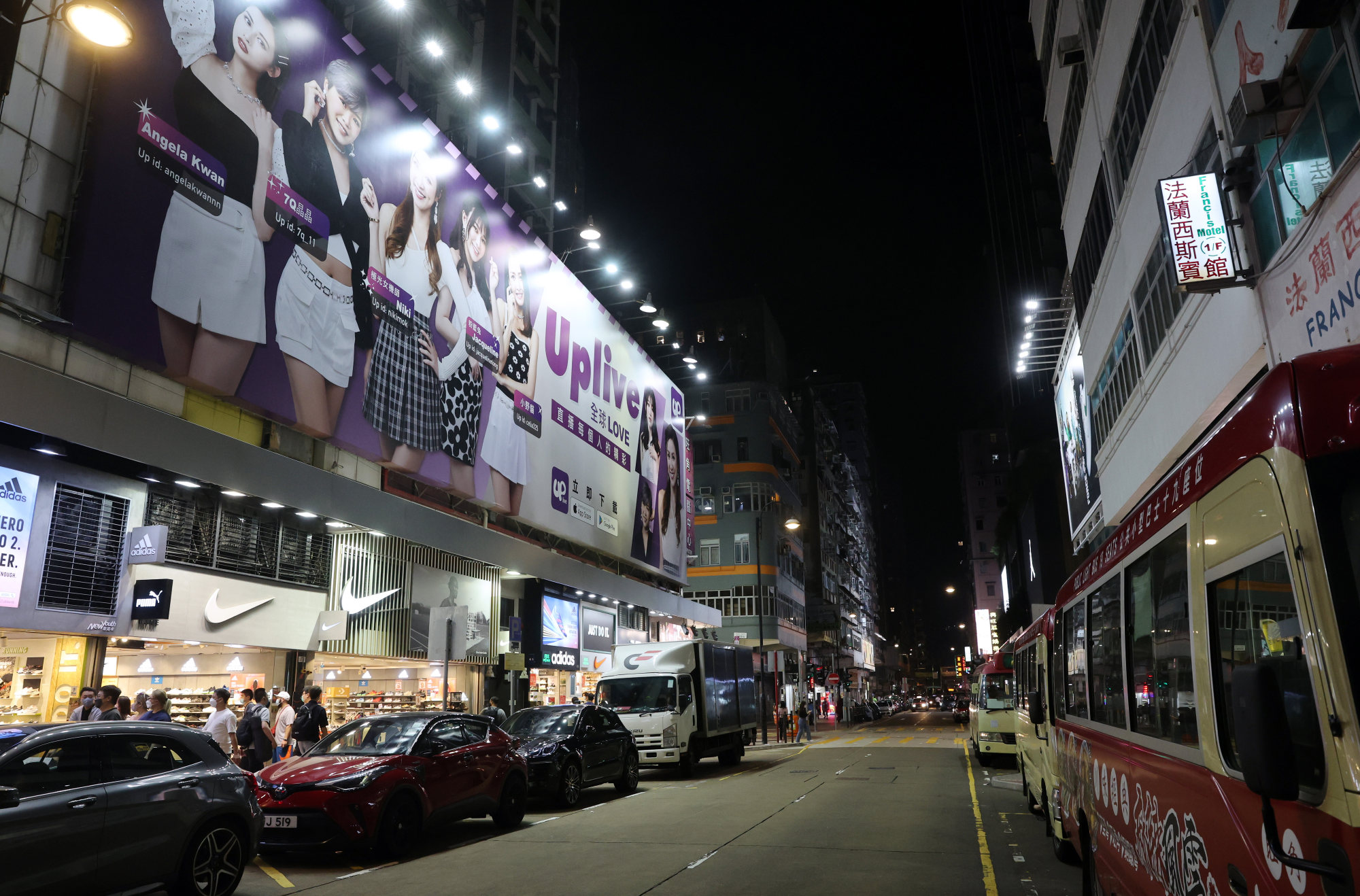
The group’s latest survey early this month along a section of Sai Yeung Choi Street South, between Dundas Street and Mong Kok Road, found 28 shops with their outdoor lights left on after they closed at 11pm.
Two of the shops were among companies that had signed the charter volunteering to switch off their outdoor lights.
The outlets of fast-food group Café de Coral and appliances chain Broadway had their signboards lit past 11pm, beyond their respective closing times of 10pm and 10.30pm.
Both blamed a time switch malfunction for failing to turn off the lights automatically on time.
Café de Coral said it had told the outlet to repair the timer as soon as possible, while Broadway said it had already fixed the problem and checked all its branches using the same device.
But Lau said light pollution in urban areas had intensified since the charter was introduced in 2016.
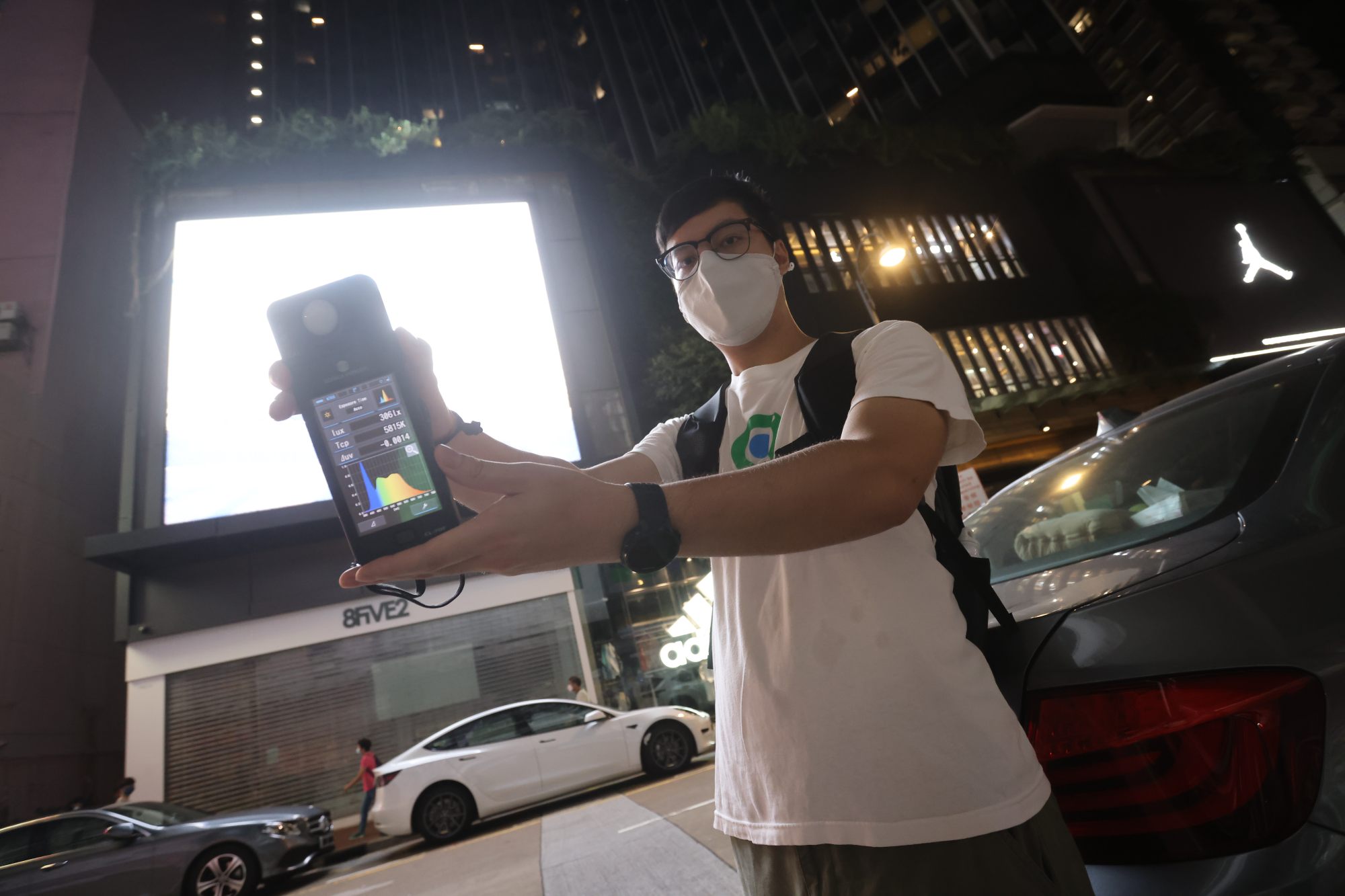
In an extreme case, the group found a seven-by-seven-metre screen outside The Forest shopping and residential complex in Mong Kok, emitting light 15 times the recommended level set by the International Commission on Illumination, an intergovernmental organisation.
The signboard was on until 10.30pm every day, it said.
When the Post contacted The Forest, it said it had taken immediate action to switch off the lights of all its billboards at 9pm and would check the light level, design and coloration of its outdoor signs.
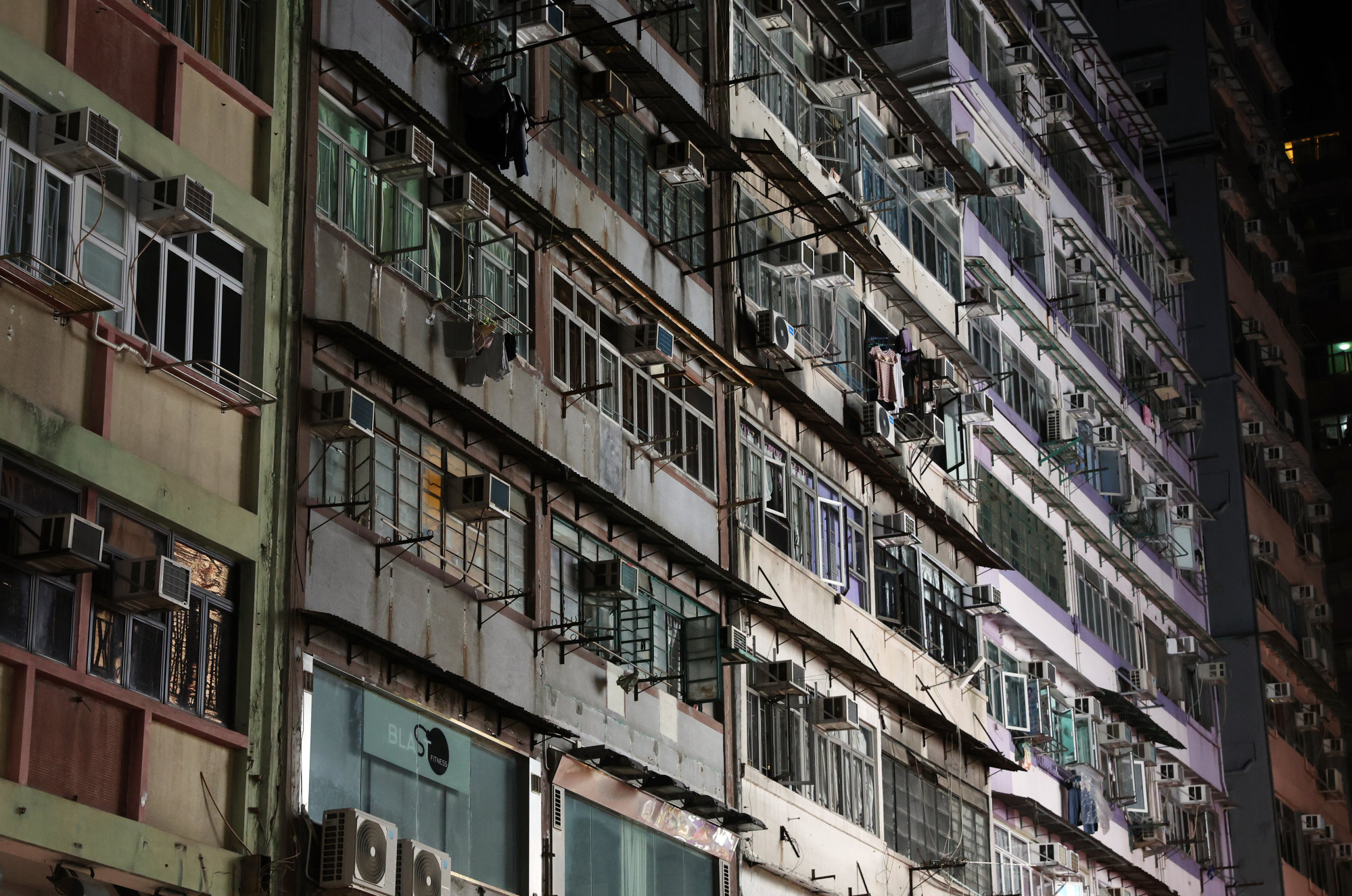
Past studies had found Hong Kong to be the world’s worst city for light pollution, with levels in Tsim Sha Tsui found to be nearly 1,200 times brighter than a normal night sky.
Last month, the Environment and Ecology Bureau updated the Charter on External Lighting, asking shop owners and business operators to switch off their outdoor lighting, including decorative, promotional or advertising installations such as signboards, spotlights and video walls, between 10pm and 7am the next day.
Lights out for Hong Kong’s neon signs? Why tradition is losing its shine
Taking effect on January 1, it suggests lights out beginning an hour earlier than before.
It is still voluntary, and businesses taking part will receive a diamond award for switching off their lights at 10pm, a platinum award for switching off at 11pm and a gold award if they switch off from midnight.
No penalties have been mentioned for those who sign up but do not honour their commitment.
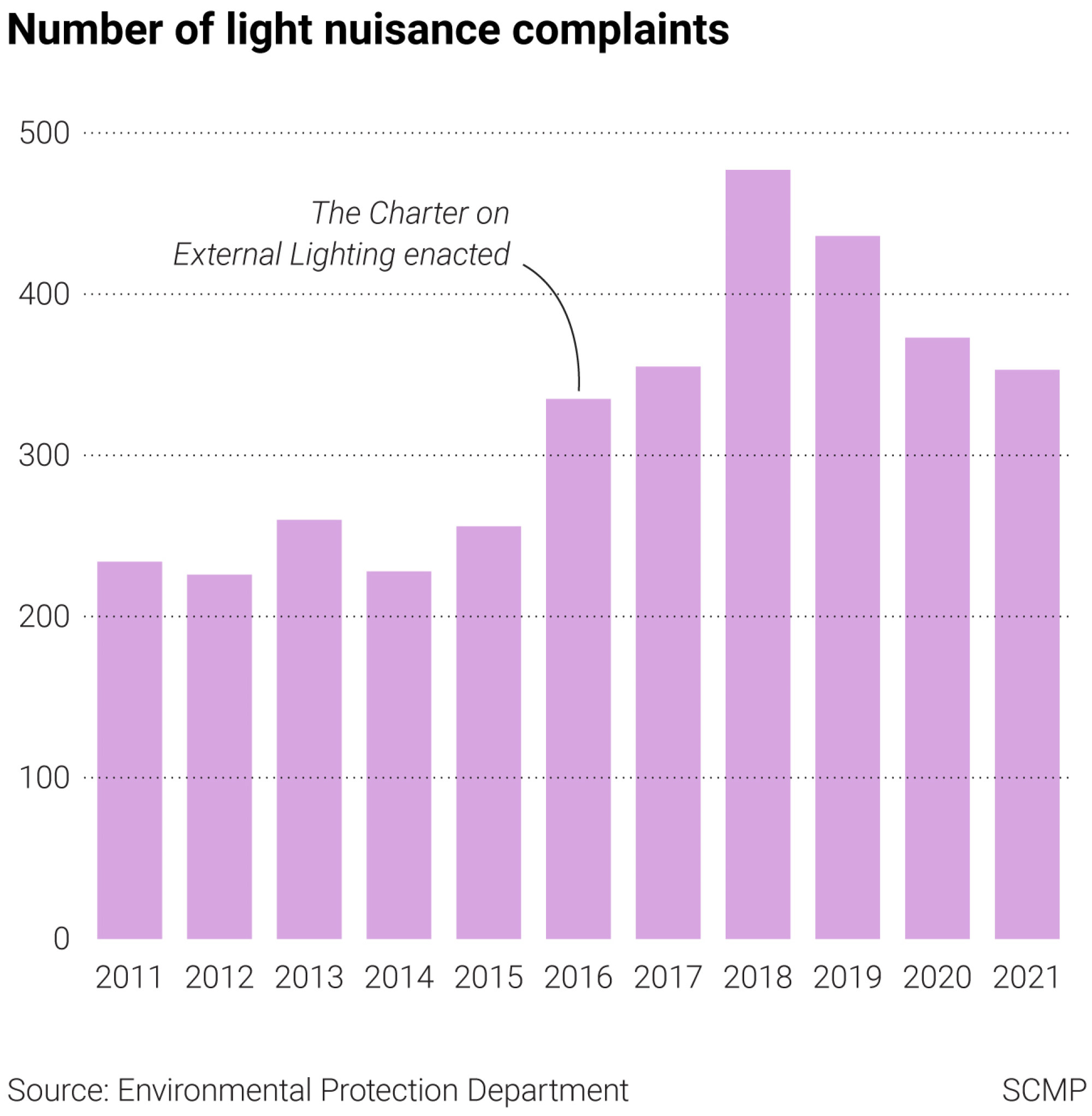
The Green Earth said the charter did not help in reducing light pollution as those who signed up faced no consequences for breaching the charter.
Environmental Protection Department statistics show that the commercial districts of Yau Tsim Mong and Wan Chai were the most affected by light pollution last year, with 42 and 37 related complaints respectively.
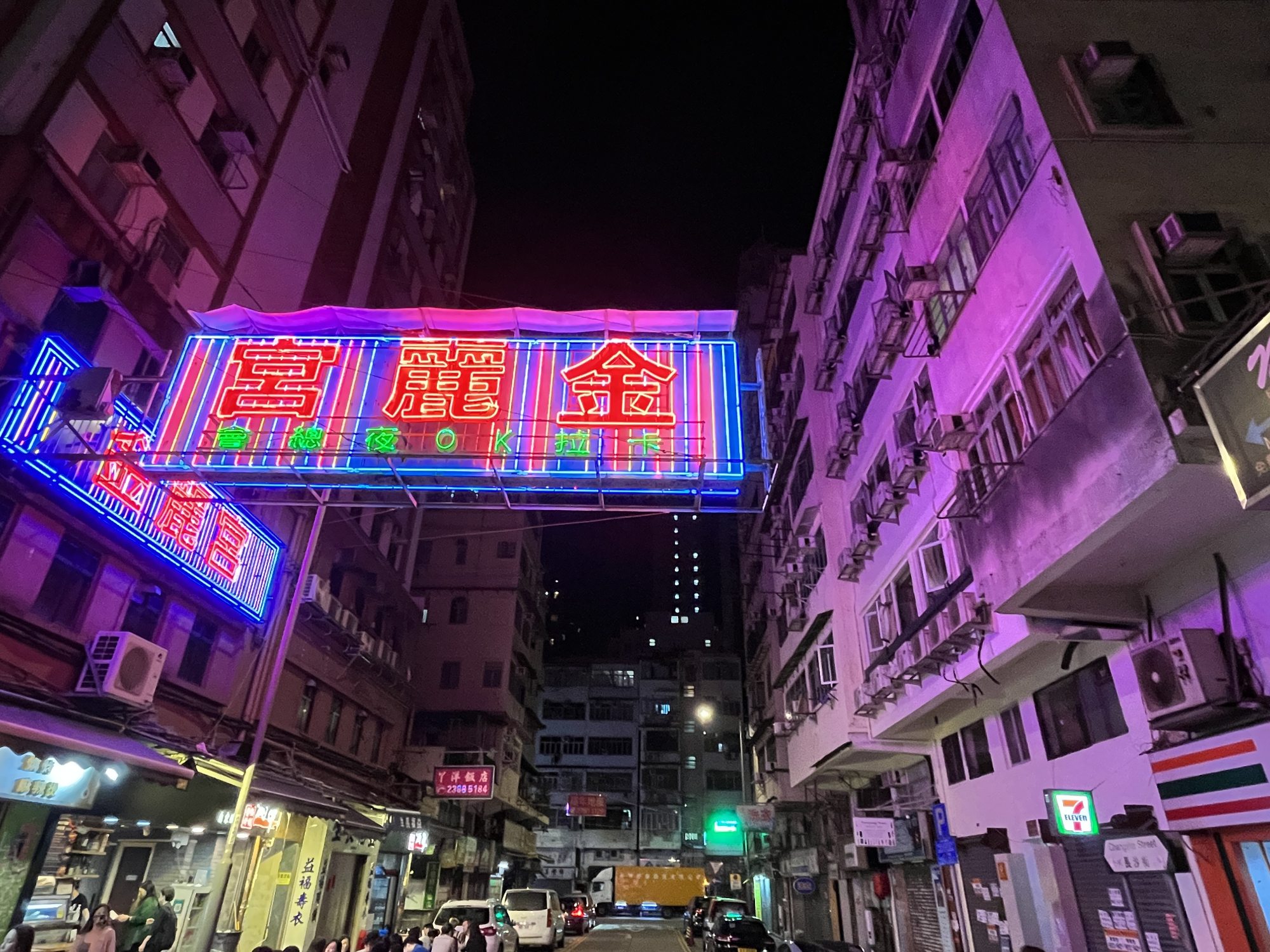
Both have a mix of urban residential, institutional and commercial areas, with shops and hawker bazaars occupying the ground floor of housing blocks.
Lau, who led the light pollution survey, said many of the residents there were grass-roots families. He asked what they could do if the charter did not work.
“Do they deserve to endure it and keep their windows shut?” he asked.
Hong Kong’s quest for sustainability must include dimming the lights
A study by California-based sleep science company SleepScore Labs found that exposure to bright light at night disrupted the body’s signal to relax and suppressed the production of melatonin, a hormone associated with controlling the sleep-wake cycle.
The Green Earth suggested that the government send more officers to inspect artificial lighting installations and upgrade its environmental impact assessment practice to protect residential buildings from light pollution.
The Post has contacted the Environment Protection Department for comment.
